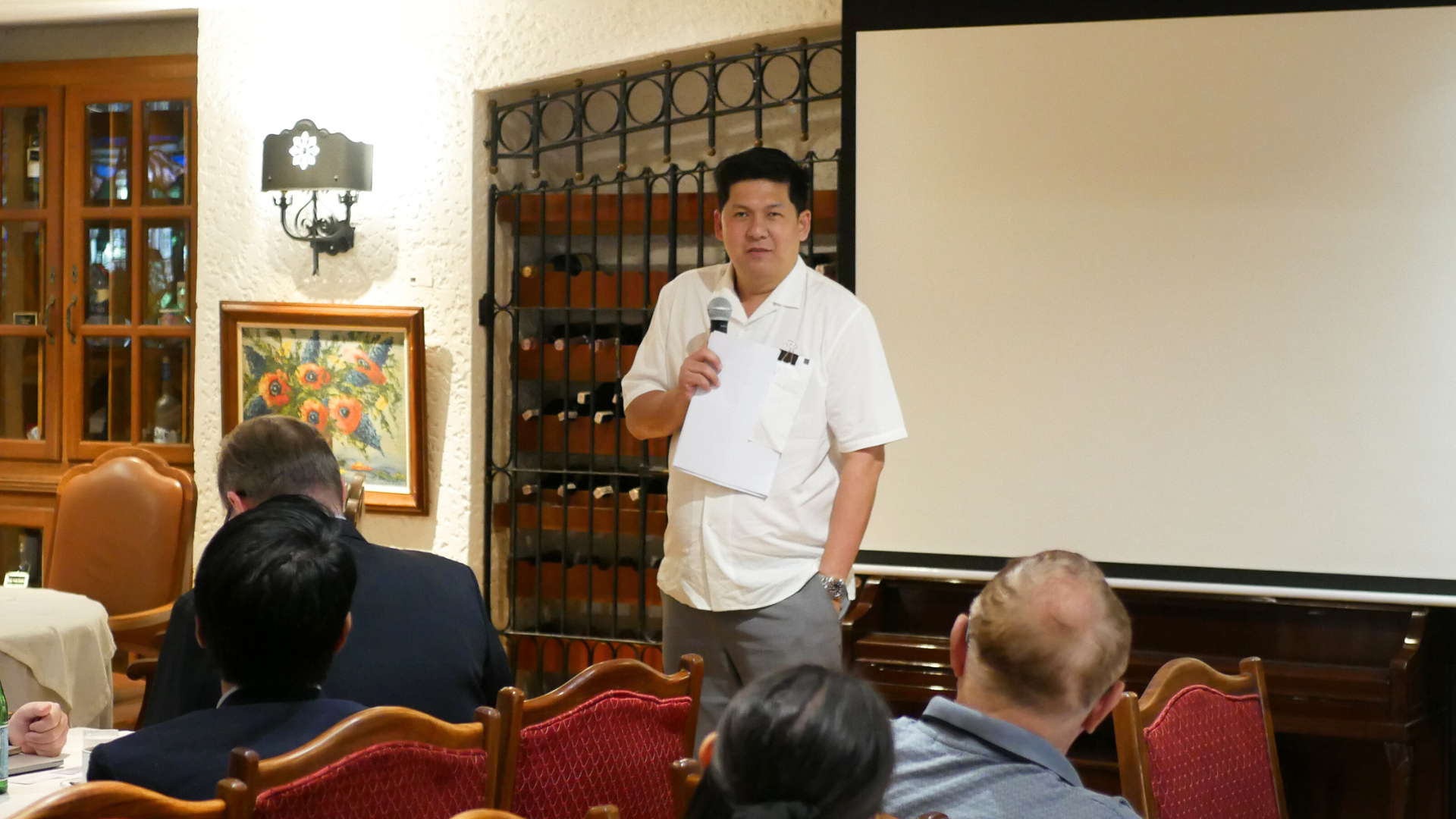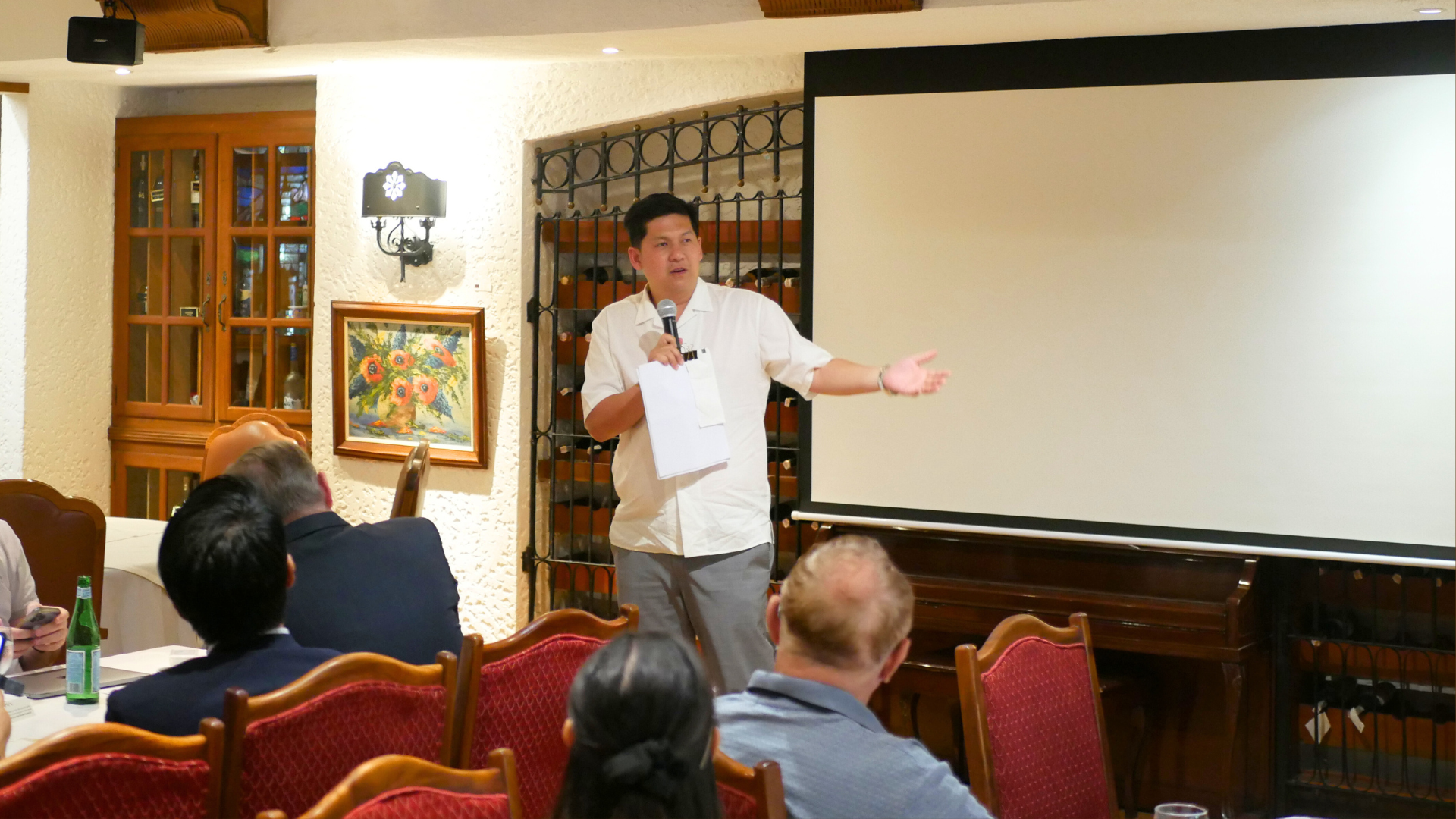From Seafarer to Public Servant: Cong. Olaso's Call for a Stronger Maritime Industry in the Philippines—Joint Maritime Committee Meeting for February
On 29 February 2024, the Nordic Chamber of Commerce of the Philippines co-hosted the Joint Maritime Committee Meeting for the month of February held at the German Club Manila, Makati City.
Joining this month’s discussion as a speaker is Cong. Khymer Adan T. Olaso, the 1st District Representative of Zamboanga City, where he shared his journey from being an ordinary seafarer to now a public servant advocating not only for his constituents in Zamboanga, but also for supporting seafarers in the country and championing the improvement of the maritime industry in the Philippines.
A SEAFARER AND A PUBLIC SERVANT
Cong. Olaso began his talk by providing a brief overview of the challenges Filipinos face when entering the maritime industry. He noted some of these challenges, such as financial constraints due to high tuition fees, training, and certification costs, as well as expenses for licenses and documents. Additionally, he highlighted the lengthy training periods that necessitate balancing studies with financial responsibilities or family obligations. Moreover, he emphasized the rigorous physical and mental demands required to withstand life at sea, including long working hours, challenging weather conditions, and extended periods away from family.

He also shed light on the challenges Filipino seafarers face when entering the competitive job market, where there is a surplus of qualified candidates vying for limited opportunities. As an example, he highlighted the persistent discrimination experienced by Filipino seafarers within the maritime industry, who face numerous challenges stemming from biases and unequal treatment. He pointed out that despite their competence and outstanding proficiency to compete in the global market, many Filipino seafarers still encounter barriers to growth, such as limited opportunities for career progression and unequal pay compared to seafarers from other countries.
For Cong. Olaso, addressing these common hardships necessitates a holistic approach involving support from educational institutions, government agencies, industry stakeholders, and financial assistance programs to ensure aspiring seafarers receive the necessary training, resources, and opportunities for success in their chosen career path.
MAGNA CARTA OF FILIPINO SEAFARERS
Also discussed in the meeting was the pending Senate Bill No. 2221, known as 'An Act Providing for the Magna Carta of Filipino Seafarers.' This bill aims to address recurring deficiencies in domestic laws concerning the training and accreditation of thousands of Filipino seafarers, which pose a threat to their employment, particularly in the European market and the global maritime arena.
As mentioned by Cong. Olaso, the Magna Carta of Filipino Seafarers was one of three measures President Ferdinand Marcos Jr. was expected to sign on February 26, but only two measures pushed through. The proposed Magna Carta of Filipino Seafarers would require maritime academies to make significant investments in simulators, training ships, and other technologies.
Despite the delay, Cong. Olaso remains optimistic about the passage of the bill, particularly for the welfare and advancement of Filipino seafarers and the development of the maritime industry in the Philippines. This is crucial given that the country is recognized as the world's leading supplier of seafarers, with over 600,000 Filipinos employed in the maritime sector. In 2022 alone, the Philippine Overseas Employment Administration (POEA) deployed over 400,000 seafarers to countries worldwide.
A CALL FOR SUPPORT
Addressing maritime industry leaders, businessmen, investors, and stakeholders at the event, Cong. Olaso urged participants to enhance training programs for Filipino seafarers. Emphasizing the significance of quality education, he advocated for improved learning opportunities and accessibility for all aspiring Filipinos. His overarching goal is to ensure that every Filipino with aspirations for a maritime career has equitable access to comprehensive training, thus cultivating a skilled workforce capable of driving the industry forward.

The event concluded with a brief Q&A session during which Cong. Olaso addressed inquiries regarding his outlook on the future of the maritime industry in the country, as well as the government's strategies for ensuring its sustained growth and success.
All in all, he assured the participants that he believes that the maritime industry has already flourished and improved as compared to his experiences years ago, and is very hopeful that it would continue to do so, especially now that he is at the forefront of representing them at the legislative body. He further mentioned that currently, he is closely working with the government and fellow legislators to promote and protect Filipino seafarers and the maritime industry in the Philippines.
ABOUT THE EVENT
The Joint Maritime Committee Meeting is an event organized collaboratively by the Dutch Chamber of Commerce in the Philippines (DCCP), the French Chamber of Commerce and Industry in the Philippines (CCIFP), the German-Philippine Chamber of Commerce and Industry (GPCCI), the Nordic Chamber of Commerce in the Philippines (NordCham), and the Philippines Norway Business Council (PNBC).
